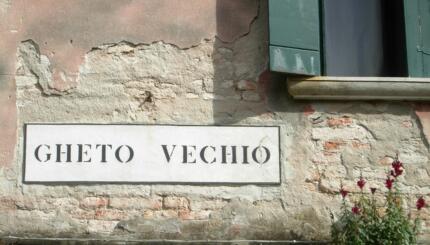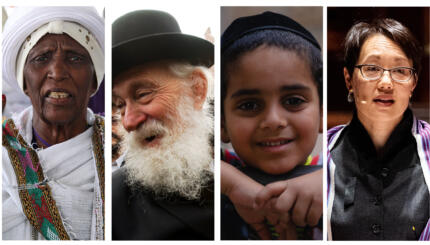By Fibonacci Blue from Minnesota, USA – Black Lives Matter protest against St. Paul police brutality, CC BY 2.0, https://commons.wikimedia.org/w/index.php?curid=44807674
I see the sirens appear in my rearview mirror as if out of nowhere. I quickly scan the road ahead of me, looking for the errant motorist who was being pursued, but it is empty. It takes me a few seconds to realize that the police car was actually intended for me. Had I been speeding? Did I accidentally run through a stop sign? Panic sets in as I pull my car over to the side. Awash in adrenaline, my mind racing and my hands shaking, I barely hear the policeman when he demands my license and registration. I say a quick prayer for the registration and insurance information to still be in the glove compartment, which, thank God, they are. As I hand the materials over to the policeman, I ask him, politely, why he had pulled me over. He tells me that he saw me looking at my cellphone while I was driving.
I am startled and angered by this reply, because, in fact, I had NOT been talking or texting on my phone. I had simply checked the GPS on my phone for the quickest route home because there was construction ahead of me. I want to challenge the officer, explaining to him how he is mistaken, but he already is fully engaged in his car, writing up the ticket. As minute after minute ticks by, my heartbeat slows, my adrenaline subsides, and I know the worst is over. I will say nothing more here on the road, challenge the ticket through traffic court, and if worst comes to worst, pay the erroneous fine and move on with my life. Though I still feel wronged, I politely take the ticket from the officer, pull away, and drive home.
This is precisely what it means to live with white privilege in America today. That feeling of powerlessness and fear, so instantly palpable when I realized I was being pulled over, lasted for only a few seconds; as soon as he and I began to speak, it was over. I knew I would be fine. Philando Castile, Alton Sterling, and so many other people of color pulled over or otherwise detained by police do not share the same privilege. They know what social media is now showing us anecdotally, and what independent studies are now confirming: that African-Americans are stopped and searched disproportionately; that they are more likely than other racial groups to be touched, handcuffed, pushed to the ground or pepper-sprayed by a police officer, even after accounting for how, where and when they encounter the police; and that they have a very reasonable fear of any encounter with the police ending in violence or even death. As my former Columbia professor and esteemed scholar of sociology and African-American studies, Michael Eric Dyson, eloquently put it in a New York Times op/ed over the weekend:
You make us afraid to walk the streets, for at any moment, a blue-clad officer with a gun could swoop down on us to snatch our lives from us and say that it was because we were selling cigarettes, or compact discs, or breathing too much for your comfort, or speaking too abrasively for your taste. Or running, or standing still, or talking back, or being silent, or doing as you say, or not doing as you say fast enough.
OK, you might be saying by now, I accept that racism still exists in America. I acknowledge that “driving while black” is a risk I, as a white person, will never confront. But even if white privilege is real, even if racism is systemic within the criminal justice system, why bring it up here, in a Jewish context?
I believe there are at least two reasons why I feel compelled to talk about it. First, self-preservation. The virus that infects our culture with racism also leaves it highly susceptible to anti-Semitism. As our history has taught us time and again, bigotry and discrimination against one group leads to bigotry and discrimination against Jews. Just look at France or Belgium today. And lest we think we are immune from such threats here in the U.S., look at how Jewish journalists are being attacked with anti-Semitic diatribes by Donald Trump supporters if they dare say anything critical of Trump. Many even receive death threats. If we do not use any existing comfort, wealth, and power to confront the hideous existence of racism and discrimination in America today, we risk being its victims in the not too distant future.
My second reason is more affirmative: being mindful about the way we engage in the world is at the heart of what it means to be Jewish. Acting with kavannah, with intentionality, is what we aspire to do as Jews. The reason we say a bracha (blessing) before and after we eat is to elevate ourselves beyond our animalistic tendencies. We mark off periods of time in the Jewish calendar as periods for certain categories of mindfulness: from the Three Weeks of grieving over the summer to the Ten Days of Repentance between Rosh Hashanah and Yom Kippur to the seven weeks of spiritual ascent from Passover to Shavuot during which we count the Omer. Of course talking about white privilege is uncomfortable. It means accepting a troubling critique of a culture that I am a part of. It means admitting that even if I am not intentionally racist, I benefit from a society that is. But admitting uncomfortable truths about ourselves is precisely what we do every year from Rosh Hashanah to Yom Kippur! We are the champions of self-criticism. It is in our DNA. What’s more, being aware of ourselves, being open to the realities of our lives and the disparate realities of others in our midst is part of our Jewish destiny. We cannot be an ur l’goyim, a light unto nations, if we blind ourselves from the experiences and outlooks of others. Nor can we experience the holiness of Martin Buber’s “I and Thou” or the moral imperative of Emmanuel Levinas’ “face of the Other” if we refuse to see, condemn, and work to end the scourge of police shootings of people of color. I aspire to use my privilege to do just that. I hope you’ll join me.
bracha
Pronounced: bruh-KHAH, also BRUH-khuh, Origin: Hebrew, a blessing.
Rosh Hashanah
Pronounced: roshe hah-SHAH-nah, also roshe ha-shah-NAH, Origin: Hebrew, the Jewish new year.
Shavuot
Pronounced: shah-voo-OTE (oo as in boot), also shah-VOO-us, Origin: Hebrew, the holiday celebrating the giving of the Torah at Mount Sinai, falls in the Hebrew month Sivan, which usually coincides with May or June.
Yom Kippur
Pronounced: yohm KIPP-er, also yohm kee-PORE, Origin: Hebrew, The Day of Atonement, the holiest day on the Jewish calendar and, with Rosh Hashanah, one of the High Holidays.



